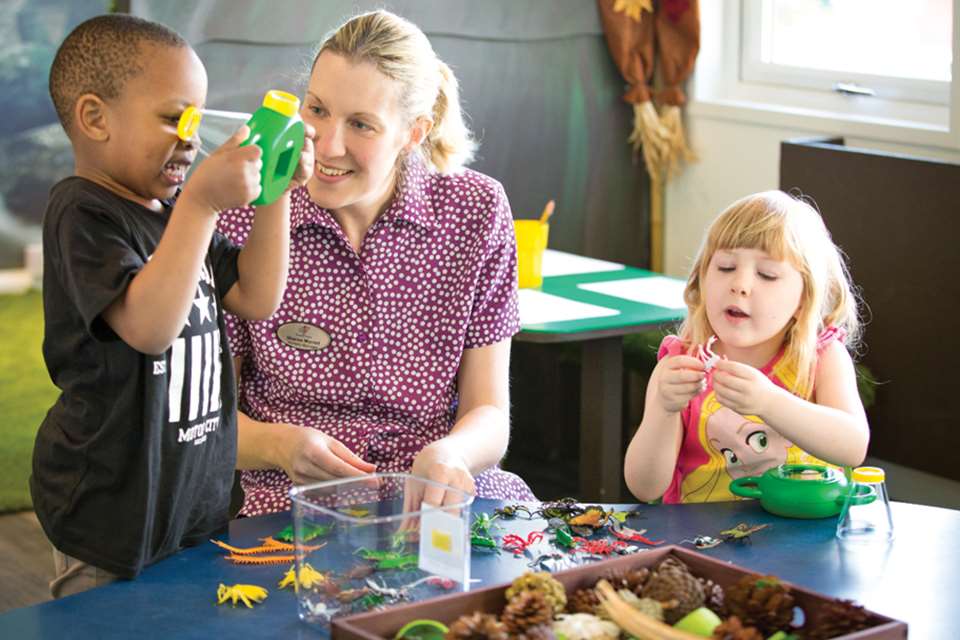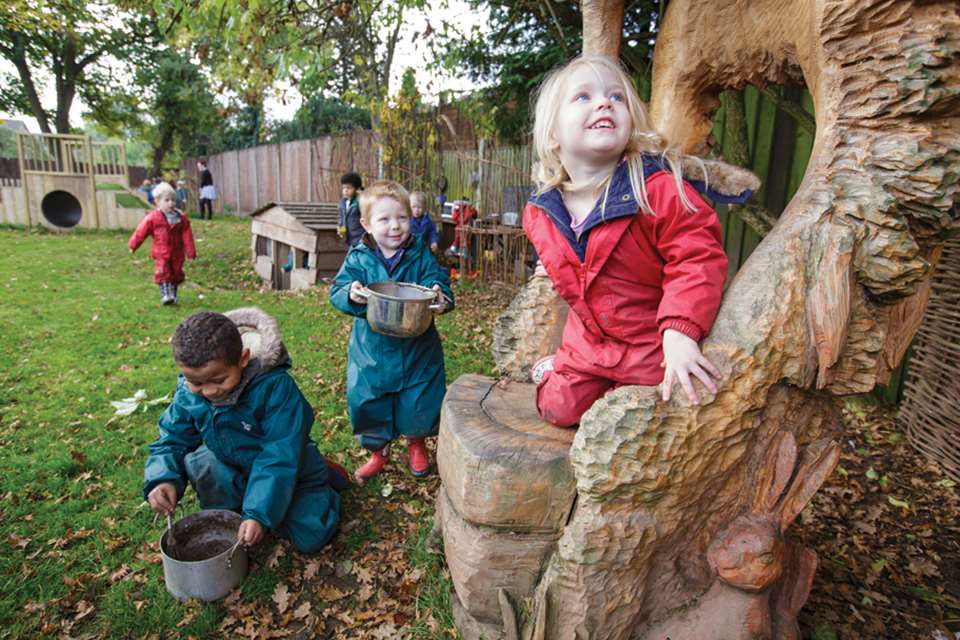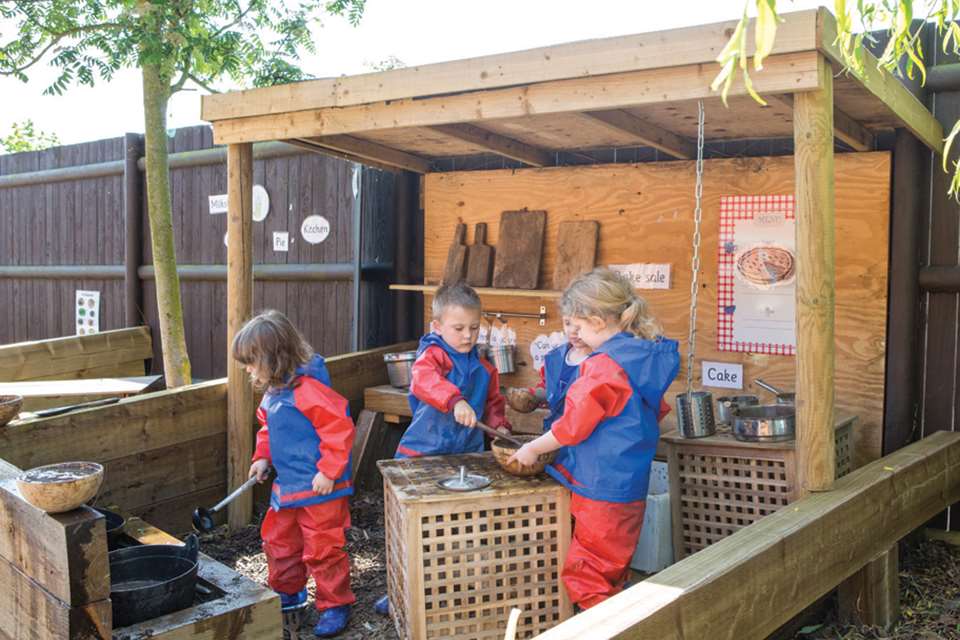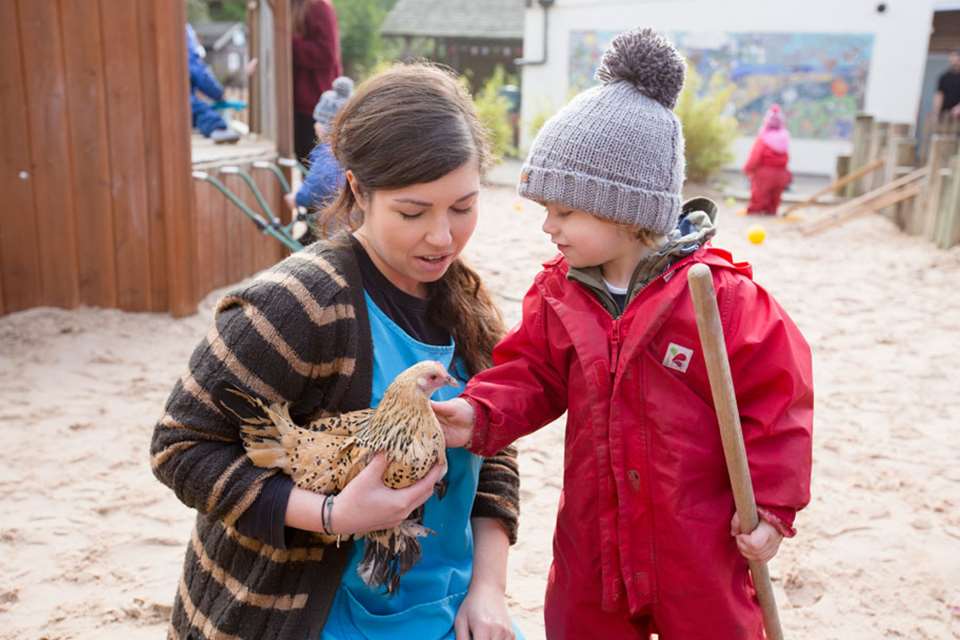Nursery Chains: Business - Licence to care
Annette Rawstrone
Monday, November 16, 2015
The franchise model is increasingly popular among nurseries wishing to expand. Annette Rawstrone speaks to three owners who have taken the plunge about the pros and cons of sharing their brand

Franchises are all over the high street – from McDonald’s to Costa Coffee and InterContinental hotels – but the British Franchise Association reports that it is also seeing a big growth in nursery franchising. Nursery chains are looking to franchising as a way to strengthen the brand and reach of their companies and secure future profitability.
Put simply, franchising is a way of replicating a successful business. It is the granting of a licence by one person (the franchisor) to another (the franchisee) which allows them to trade as their own business in a defined area but under the franchise brand. It is sometimes referred to as a ‘business in a box’, with the franchisor providing a tried and tested operating model and giving ongoing training and support.
Nurseries make a good business for franchising because they can operate in numerous locations under a shared brand and using the same systems to help maintain quality. Packages for nursery franchises often include help with site search and selection, business and marketing planning, assistance with recruitment of staff, staff training programmes, childcare policies and procedures and ongoing management support.
Nursery franchisors warn that operating a franchise is not an easy option – there has to be a lot of finance and time invested in pulling together systems and infrastructure before any profit is seen – but once these are in place it can be a cost-effective way to grow a childcare business. If your model appeals to others then growth can be quick, although care has to be taken not to compromise quality and the brand. The nursery chain benefits from the capital investment of franchisees through paying a licence fee followed by monthly fees. This money can be used for further expansion instead of relying on risky financial leveraging. It also enables the chain to use the local knowledge of the franchisee to expand into areas that it is not familiar with and get its brand more widely recognised.
Franchising has given Nature Trails an opportunity to expand its brand in new locations
‘Maintaining quality is the hardest part of running a franchise and there are no shortcuts’
It is also argued that the franchise model works for large nursery groups because having local owners, as opposed to paid managers, increases quality through them having a vested financial interest in the success of the setting, which then benefits the wider brand.
Of course, it is not without risk and franchisors have to be confident that quality is high in each of the franchise settings, as well as maintaining the high quality in their corporate nurseries, in order to protect the image of the wider chain. This involves careful franchisee selection, strong franchise agreements, ongoing training and support and regular nursery visits.
Evolution Childcare
The seeds of starting a franchise were sown for Sue Jones in 2007 when the global recession hit. She decided that she had to ‘sit tight’ to see if her nursery business, formerly known as Kids Academy, would be financially viable to withstand the recession. For three years she focused on quality rather than expansion and revisited the core processes of the business to streamline operations and make the framework efficient and deliverable. From this she was able to develop a franchise package with the help of a franchise consultant, which she first launched in Abu Dhabi and then in the UK in 2012 after five years spent working on it.
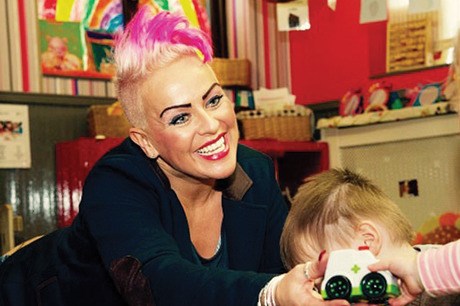
‘I don’t plan to grow only through franchising and will continue to grow my own corporate network. I also don’t see myself as dominating the UK nursery franchise sector as I want to retain a reasonable number of franchisees who meet my stringent criteria and are prepared to follow my high standards of childcare delivery,’ says Ms Jones. ‘I am very passionate about my brand and if you visit any one of my franchise nurseries you will see that they are too.’
Evolution Childcare now has six international franchises and another three in the UK (see case study).
Three more UK franchises are opening next year in Newcastle, Blackburn and Wolverhampton.
The group also has three of its own nurseries in Cheshire, with two more opening in 2016.
‘Having my own corporate network makes it real – I literally live and breathe what the franchisees do on a daily basis,’ she says.
The initial franchise fee is £20,000 plus VAT and a £5,000 marketing launch fee. Franchisees then pay a management service fee of 10 per cent of turnover each month. The company employs a franchise director who works closely with the franchisees and regularly undertakes Nurture Programme and Quality Audits to make sure the settings operate efficiently, maintain high standards and protect the brand. In addition, each franchise nursery manager is mentored by one of the corporate nursery managers. As independent limited companies, the franchisees are free to employ staff under their own terms and conditions, but follow Evolution Childcare’s safeguarding, health and safety and staff training matrix.
Ms Jones warns potential nursery franchisors, ‘You need the advice and support of experts. It’s quite a scary prospect to let other people use your brand and have access to all of your intellectual property. The franchisees need to understand that a nursery is not only a business. There is a huge duty of care to the brand, the parents, the children and the staff.’
‘They are trading on our success so we need to also make sure that the franchises are a success’
Evolution Childcare’s Sue Jones warns that franchisors ‘need the advice and support of experts’
Nature Trails
Nature Trails owns two nurseries and is now gradually expanding the childcare business through franchises. Owner Steve Dyke says, ‘We built up our first nursery from 37 to 88 places and then started looking at other ways to expand. One of the best ways is through a franchise because you are then able to open in many parts of the country. Together we can form a strong network that strengthens the brand and image of the company. I also feel it is better for a nursery if it is actually run by an owner as opposed to putting a manager in – if they own the business then they will go the extra mile and ensure the best quality.’
The franchise has been running for just over a year and three franchisees have signed up, with a fourth expected to join soon. They are currently all searching for suitable properties – with an emphasis on access to outdoor space being a Nature Trails requirement.
Nature Trails has invested £200,000 into developing the franchise, which currently costs £21,995 for foundation franchisees, and hopes to break even in two to three years. ‘We intend to grow slowly and to have 20 nurseries by 2020. The most we want to take on in the first 12 months is four so that we can dedicate time to them and then continue to grow by four nurseries per year,’ he says. ‘They are using our brand and trading on our success so we need to also make sure that the franchises are a success.’
There has to be a close working relationship between franchisor and franchisee – they are dependent on each other for success – so Mr Dyke is selecting them carefully. An interest in working with children has to feature highly – with a deputy manager of a nursery, a midwife and a teacher all Nature Trails franchisees. ‘We offer a high level of support so there has to be a good chemistry – I look for people who have the passion to run an exceptional nursery and have the finance,’ he says. ‘The principal risk for us is our own reputation. If we do not choose the right franchisee it can compromise the brand.’ In order to protect the company’s brand, franchisees are expected to carefully follow the operations manual and procedures and achieve the NDNA e-Quality Counts accreditation within the first couple of years of opening. ‘All the nurseries will be branded in the style of Nature Trails and all staff will be of the same high quality because we will give the training. Parents will see no difference between all the nurseries,’ says Mr Dyke.
For other nursery owners considering starting a franchise, he advises making sure you have an idea that is original and warns there is a huge time and financial commitment. ‘You need to have a great belief it will succeed because there is a huge up-front commitment and it will take around five years to break even,’ he says.
Banana Moon
 While Banana Moon no longer operates its own nurseries (it sold them both to Co-operative Childcare in 2012), it still considers itself a nursery group. The company will have 46 franchise nurseries trading in the UK by the end of the year and a further 15 internationally. It aims to have up to 100 nurseries in the UK in the next 10 years. Director Steve Felmingham says the franchise route, which launched in October 2010, was appealing because each setting has a local owner who will keep a close eye on operations, rather than paid staff who may not have the same level of care and passion.
While Banana Moon no longer operates its own nurseries (it sold them both to Co-operative Childcare in 2012), it still considers itself a nursery group. The company will have 46 franchise nurseries trading in the UK by the end of the year and a further 15 internationally. It aims to have up to 100 nurseries in the UK in the next 10 years. Director Steve Felmingham says the franchise route, which launched in October 2010, was appealing because each setting has a local owner who will keep a close eye on operations, rather than paid staff who may not have the same level of care and passion.
He describes selecting potential franchisees as ‘an interview process not a sales process’ which involves an application, telephone interview and, if successful, a face-to-face interview that can last up to four hours. On average, only two or three people are successfully accepted each month, despite it receiving around three enquiries a day. ‘We are looking for people who share our vision and values and will look after the brand rather than just open a business to make money,’ says Mr Felmingham. Perhaps surprisingly, people with prior childcare experience are often not successful at being selected. ‘Franchising is a funny world that requires a degree of compliance which can be difficult for people who have managed their own settings,’ he explains.
Along with paying the start-up costs of a new nursery business, the franchisee must invest £35,000, plus VAT, to join the Banana Moon franchise and then pay an ongoing monthly service fee of 9.5 per cent, plus VAT, of turnover.
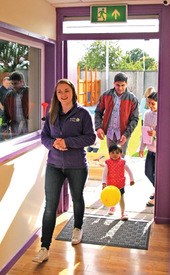 Although the group’s nurseries operate from a wide range of buildings and locations, the company is increasingly ensuring that inside they are branded consistently and staff wear the same uniforms. There is a 15-strong team to support franchisees, including two former Ofsted inspectors and nursery managers, who have a regular presence in all the nurseries.
Although the group’s nurseries operate from a wide range of buildings and locations, the company is increasingly ensuring that inside they are branded consistently and staff wear the same uniforms. There is a 15-strong team to support franchisees, including two former Ofsted inspectors and nursery managers, who have a regular presence in all the nurseries.
‘Maintaining quality is the hardest part of running a franchise and there are no shortcuts,’ says Mr Felmingham. ‘We find the only way is to be there a lot so that people know what good quality looks like. If safeguarding slips then we act swiftly, which can mean taking over management or exiting the franchise and closing the nursery down, which we have done twice. It is upsetting for a lot of people but we have to protect the brand and the children in our care.’
Franchisee Case Study: Adam Newman, owner, Evolution Childcare@ The Lodge Nursery and Pre-school, Cheltenham
‘My wife and I were interested in starting our own business and it made sense to use both our skillsets – hers as a primary school teacher and mine in finance – to open a nursery. A franchise package appealed because it meant we did not have to invest a lot of time and money on the regulatory rigour and requirements of running a nursery. Buying a tested model means that someone has been through the pain for you and is also there to give advice.
‘I looked at a number of nursery franchise options and chose Evolution Childcare because I felt that we would have one-to-one support and not be dictated to. I felt a chemistry with the people, which is important when we’ll potentially be working together for up to ten years, and they gave me good evidence of how they will carefully manage their growth.
‘We started working with Evolution in March 2014. Finding a suitable property was the toughest part, but once we found a nursery for sale in Cheltenham in August last year the turnaround was quick and we opened in January. The franchisor helped us to look at the finances and negotiate the deal and has continued to support us with advice and training. It’s good to have a second opinion and other franchisees to share ideas with.
‘Of course we pay handsomely for this but I’d hate to add up the amount of time-costed hours that they have invested in us. We funded the acquisition of the nursery and paid an initial franchise fee. We now pay a monthly management service fee which is a percentage of our turnover.
‘We don’t want to walk before we can run, but the franchisor has reassured us that we have options to expand our patch and we are considering opening another nursery in the future.’
Further information
British Franchise Association, https://www.thebfa.org
http://www.evolution-childcare.co.uk






